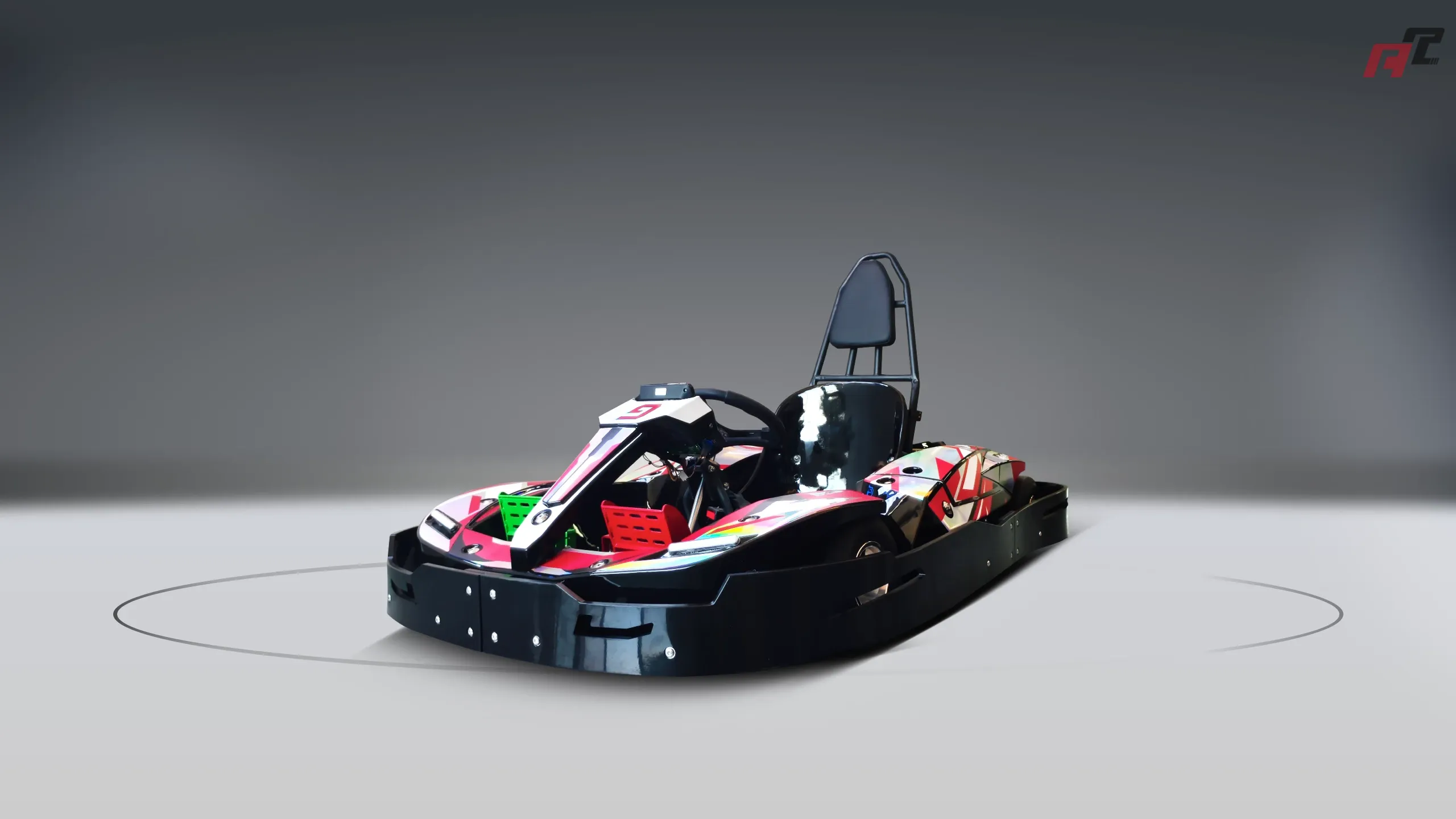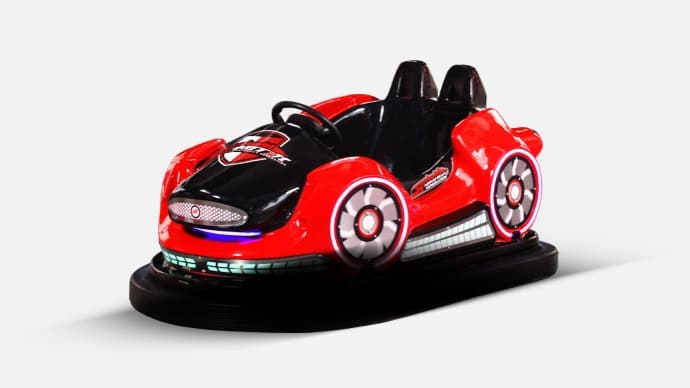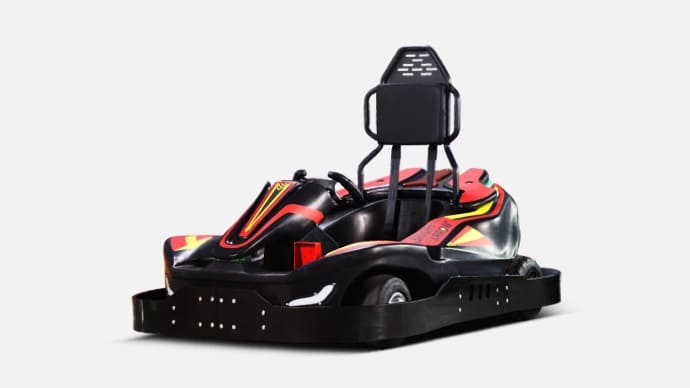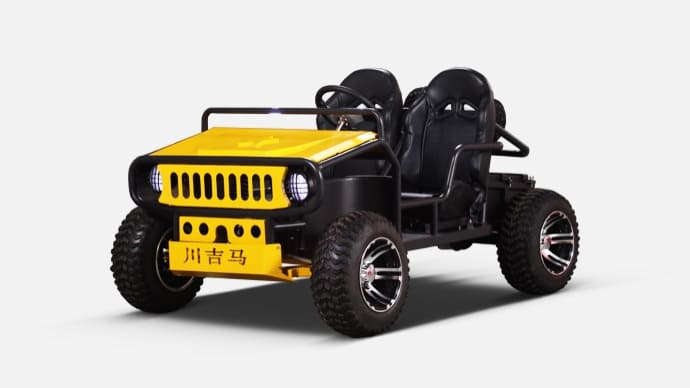Regulations and Insurance Considerations for Battery Bumper Cars
- Introduction: Why Regulations and Insurance Matter for Battery Bumper Cars
- Overview
- Understanding the Battery Bumper Car: Technology and Safety Basics
- Battery types and implications
- Electrical and mechanical systems
- Key International Standards and Regulations
- European Union — CE, EN 13814, and Directives
- United States — Local Codes and ASTM Guidance
- China and other markets — National Standards and Certifications
- Battery-Specific Standards to Know
- Cell and pack safety standards
- Charger and electrical equipment standards
- Manufacturer Obligations and Best Practices (For ANCHI Amusement and Suppliers)
- Design, documentation, and testing
- Labeling, instructions, and warnings
- Operator Requirements and Venue Compliance
- Permits, inspections, and operating procedures
- Staff training and patron controls
- Insurance Considerations for Battery Bumper Cars
- Types of insurance policies to consider
- Typical coverage limits and expectations
- Risk Factors That Affect Insurance and Compliance
- Battery fire and thermal events
- Mechanical failures and guest injuries
- Practical Compliance Checklist for Battery Bumper Cars
- Pre-installation and purchase checklist
- Operational checklist
- Battery Types Comparison for Bumper Cars (Practical Table)
- Comparing battery chemistries
- Case Studies and Real-World Examples
- Manufacturer best practice (example)
- Operator mitigation example
- How to Work with Insurers and Regulators
- Documentation insurers want to see
- Engaging regulators early
- Maintenance, Incident Response, and Recordkeeping
- Maintenance routines
- Incident management
- Choosing a Trusted Manufacturer and Service Partner
- What to evaluate in a vendor
- ANCHI Amusement as an example partner
- FAQs: Common Questions About Regulations and Insurance for Battery Bumper Cars
- Q1: Do battery bumper cars require CE/UL certification?
- Q2: Which battery type is safest for bumper cars?
- Q3: What insurance limits should a small venue carry?
- Q4: How often should inspections be done?
- Q5: What documentation do insurers require after an incident?
- Closing Recommendations
- Final practical steps
Introduction: Why Regulations and Insurance Matter for Battery Bumper Cars
Overview
Battery bumper car attractions are increasingly popular in indoor and outdoor family entertainment centers. Ensuring compliance with safety regulations and securing the right insurance are critical for protecting guests, staff, and your business. This guide explains practical regulatory frameworks, battery safety standards, and insurance types tailored to battery bumper car operations and manufacturing.
Understanding the Battery Bumper Car: Technology and Safety Basics
Battery types and implications
Battery bumper cars typically use lead-acid or lithium-based batteries. Lead-acid (sealed AGM) remain common due to lower upfront cost and simplicity. Lithium iron phosphate (LiFePO4) and other lithium-based chemistries (NMC) are gaining ground for higher cycle life and lighter weight. Each chemistry affects operational range, charge cycles, weight, fire risk, and disposal requirements, so choose based on venue needs and regulatory constraints.
Electrical and mechanical systems
Battery bumper cars combine drive electronics, battery management systems (BMS), chargers, and safety interlocks. Proper design and routine maintenance of wiring, connectors, and controllers reduce risk of electrical faults. Using robust BMS and certified chargers prevents overcharge, deep discharge, and thermal issues—key to both compliance and insurance underwriting.
Key International Standards and Regulations
European Union — CE, EN 13814, and Directives
In the EU, battery bumper cars must comply with relevant directives and standards. EN 13814 provides safety requirements for amusement rides and devices. Electrical components must meet the Low Voltage Directive (LVD) and Electromagnetic Compatibility (EMC) Directive; batteries and chargers may require CE marking. Demonstrable conformity testing and technical documentation are essential for market access.
United States — Local Codes and ASTM Guidance
In the US, regulation is often at state or local level. There is no single federal amusement-ride standard, but ASTM F24 committee publications and state-specific rules guide safety. Operators should expect jurisdictional inspection, periodic testing, and adherence to electrical and fire codes (e.g., National Electrical Code and NFPA standards). Work with local authorities having jurisdiction (AHJ) early in project planning.
China and other markets — National Standards and Certifications
China uses national standards and provincial oversight for amusement equipment. Manufacturers commonly follow GB standards and obtain certifications where applicable (e.g., CCC when required). For international sales, exporters must meet destination-country standards (CE for EU, UL/ETL recognition may be requested by US buyers).
Battery-Specific Standards to Know
Cell and pack safety standards
IEC 62133 is the widely accepted international standard for rechargeable cells and batteries for portable applications, covering safety tests for lithium cells. For transportation, UN 38.3 prescribes testing for safe shipment of lithium batteries. For large-format battery packs, testing to relevant standards and third-party validation is recommended.
Charger and electrical equipment standards
Chargers and electrical subsystems should meet applicable IEC/EN or UL standards depending on market (for example, IEC 60335 for household/portable equipment or UL-listed components where US customers require it). Properly certified chargers reduce fire and liability exposure.
Manufacturer Obligations and Best Practices (For ANCHI Amusement and Suppliers)
Design, documentation, and testing
Manufacturers must maintain thorough technical files: design drawings, component certificates, risk assessments, test reports, and maintenance manuals. Regular product testing, design validation, and quality management (ISO 9001) help demonstrate Expertise and Authority when customers or regulators evaluate safety.
Labeling, instructions, and warnings
Provide clear operation manuals, safety signage for venues, battery handling instructions, and shipping labels that meet UN/transport requirements. Clear labeling supports user safety and reduces insurer concerns about negligence.
Operator Requirements and Venue Compliance
Permits, inspections, and operating procedures
Operators should secure local permits, schedule periodic inspections, and implement standard operating procedures (SOPs) for ride checks, pre-opening inspections, and incident response. Many jurisdictions require daily checklists and periodic third-party inspections for amusement rides.
Staff training and patron controls
Train ride operators on emergency stops, battery charging protocols, and incident reporting. Enforce rider restrictions (height, behavior) and use clear queue and ride rules to reduce incidents and support insurance claims defensibility.
Insurance Considerations for Battery Bumper Cars
Types of insurance policies to consider
Key insurance lines for venues and manufacturers include: general liability (public liability), product liability (manufacturer’s), premises liability, property insurance, business interruption, workers' compensation, and umbrella/excess liability. For manufacturers, product recall insurance can mitigate large-scale fault events.
Typical coverage limits and expectations
Insurers commonly require limits such as $1M per occurrence / $2M aggregate for general liability, though requirements vary by venue size and jurisdiction. Higher-risk attractions or large venues may need $5M+ limits and umbrella policies. Insurers will review maintenance logs, inspection programs, and operator training when setting High Qualitys.
Risk Factors That Affect Insurance and Compliance
Battery fire and thermal events
Battery-related fires are among the highest underwriting concerns. Using proven battery chemistries (e.g., LiFePO4) with certified BMS, storing charging areas with fire suppression and separation, and following manufacturer charging protocols all reduce risk and insurer scrutiny.
Mechanical failures and guest injuries
Design robustness, regular wear-part replacement, and documented preventive maintenance reduce mechanical failure risk. Clear signage and seat restraints where needed also lower injury frequency and severity.
Practical Compliance Checklist for Battery Bumper Cars
Pre-installation and purchase checklist
Before purchasing or installing battery bumper cars, verify: relevant component certifications, battery type and BMS specifications, charger certifications, technical files from the manufacturer, local permit requirements, and provision for regular inspections. For turnkey solutions, confirm the manufacturer's experience and after-sales support.
Operational checklist
Maintain daily inspection logs, scheduled battery health checks, documented staff training, incident reporting protocols, and up-to-date insurance certificates. Keep charging areas ventilated, fire-rated storage, and segregated battery charging stations where feasible.
Battery Types Comparison for Bumper Cars (Practical Table)
Comparing battery chemistries
The table below summarizes common battery options used in battery bumper cars. Values are typical ranges; actual numbers depend on cell design and manufacturer.
| Characteristic | Lead-Acid (AGM) | LiFePO4 (Lithium Iron Phosphate) | NMC / Other Lithium |
|---|---|---|---|
| Energy density (Wh/kg) | 30–50 | 90–160 | 150–250 |
| Cycle life (typical) | 300–500 cycles | 2,000–5,000 cycles | 1,000–2,000 cycles |
| Safety (thermal stability) | Good (low thermal runaway risk) | Very good (high thermal stability) | Good–moderate (higher energy, more management needed) |
| Typical upfront cost | Lower | Higher | Higher |
| Benefits | Low cost, simple replacement | Long life, safer, lightweight | High energy density, longer run time |
Case Studies and Real-World Examples
Manufacturer best practice (example)
Leading manufacturers combine CE/EN conformity, detailed technical files, and a proactive spare-parts program. For example, ANCHI Amusement (https://www.anchiamusement.com/) integrates R&D, production, and after-sales service to provide certified battery bumper cars, maintenance plans, and venue design support—helping operators meet local regulations and insurance requirements.
Operator mitigation example
A medium-sized indoor FEC replaced lead-acid packs with LiFePO4, instituted daily battery checks and upgraded chargers to certified models. After submitting documentation to insurers and the AHJ, the venue reduced downtime and lowered insurance High Quality escalation by demonstrating reduced fire risk.
How to Work with Insurers and Regulators
Documentation insurers want to see
Insurers typically request: maintenance logs, inspection certificates, operator training records, technical files and component certifications, incident history, and details of safety systems (BMS, fire suppression). Providing these proactively speeds underwriting and can reduce High Qualitys.
Engaging regulators early
Contact your local AHJ and building department early in the project to confirm permit needs, inspection timelines, and technical submission requirements. Early engagement avoids costly redesigns or installation delays.
Maintenance, Incident Response, and Recordkeeping
Maintenance routines
Implement scheduled preventive maintenance: battery capacity checks, connector inspections, electrical testing, and mechanical wear-part replacement. Keep digital records and photographs of completed work for both insurers and regulators.
Incident management
Establish an incident-response plan including immediate shutdown procedures, evacuation, containment of battery-related events, emergency services contact lists, and insurer notification timelines. Quick, documented response improves legal defensibility and claim outcomes.
Choosing a Trusted Manufacturer and Service Partner
What to evaluate in a vendor
Select manufacturers with proven experience, clear documentation practices, test reports, and robust after-sales service. Verify production capabilities, engineering staff, and examples of international projects—factors that demonstrate reliability and reduce downstream regulatory and insurance risk.
ANCHI Amusement as an example partner
ANCHI Amusement is one of the leading manufacturers of amusement equipment in China, offering bumper cars, go-karts, off-road vehicles, system R&D, production, sales, and after-sales service. With over 5,000 m² production space, multiple assembly lines, and a team of 30+ technicians, ANCHI provides custom manufacturing and complete venue design solutions—helpful for operators who need compliant, well-documented battery bumper car systems (https://www.anchiamusement.com/).
FAQs: Common Questions About Regulations and Insurance for Battery Bumper Cars
Q1: Do battery bumper cars require CE/UL certification?
A: Certifications depend on the destination market. EU sales typically require CE conformity with applicable EN standards (e.g., EN 13814). US buyers often request UL/ETL-listed components. Work with your manufacturer to provide the correct declarations and test reports for each market.
Q2: Which battery type is safest for bumper cars?
A: Safety depends on cell chemistry and management. LiFePO4 offers very good thermal stability and long cycle life, making it a strong safety choice. However, proper BMS, certified chargers, and safe charging/storage practices are equally important.
Q3: What insurance limits should a small venue carry?
A: Many small venues start with $1M per occurrence / $2M aggregate for general liability, but larger venues or those with higher risk profiles may need higher limits. Discuss specifics with an insurer familiar with amusement operations.
Q4: How often should inspections be done?
A: Daily pre-opening checks are standard. Formal technical inspections are commonly required quarterly or annually depending on jurisdiction. Follow local AHJ requirements and insurer recommendations.
Q5: What documentation do insurers require after an incident?
A: Provide incident reports, maintenance logs, staff training records, inspection certificates, photos, and any test data related to the failed component. Prompt and complete documentation supports timely claims handling.
Closing Recommendations
Final practical steps
To reduce regulatory and insurance risk: choose certified components, maintain thorough documentation, follow manufacturer and local AHJ requirements, implement daily inspections and staff training, and secure appropriate insurance lines. Working with experienced manufacturers like ANCHI Amusement can simplify compliance and help you deliver a safe, reliable battery bumper car attraction.
Custom 80 diy electric go kart for adults Manufacturers and suppliers in China?
How to start toddler bumper car with remote control business in China
Top electric go kart Manufacturers and suppliers in China
OEM/ODM two seat electric go kart Manufacturers and supplier in China
About Logistics
Does your product support global logistics and distribution?
Yes, our products support global logistics and distribution services, and you can receive our products anytime and anywhere.
Is your logistics and distribution service reliable?
Yes, we cooperate with a number of well-known logistics companies to ensure the timeliness and reliability of logistics and distribution services and provide you with a satisfactory distribution experience.
Can I change my shipping address?
Yes, you can contact our customer service team to modify the delivery address before order confirmation to ensure that the order can be accurately delivered to the address you specify.
About Price and Payment
What payment methods are available?
We accept a variety of payment methods, including bank transfer, credit card payment, PayPal, etc.
Cyclone RS 2025
What is the maximum speed?
The Cyclone RS 2025 reaches speeds up to 35 km/h.

Cyclone RS 2025 1200W Electric Go-kart for Home Entertainment Centers
The Cyclone RS 2025 is a high-performance electric ride-on car designed for thrill-seekers, entertainment centers, and commercial amusement businesses. Built with a durable ABS body and reinforced metal chassis, it combines strength, safety, and speed for a superior driving experience. With a 1200W mid-mounted motor (peaking at 3600W), advanced control system, and long-lasting 72V20AH LiFePO₄ battery, this ride ensures both powerful performance and reliability.
Whether for amusement parks, game zones, rental businesses, or personal recreational use, the Cyclone RS 2025 delivers unmatched excitement and durability.

Kids Electric Off Roads One-seater ATV
Discover adventure with the ANCHI Kids Electric One-seater ATV, the perfect electric off-road experience for young explorers. Designed for safety and performance, this electric off-road go kart for kids offers unmatched thrills on any terrain. Its durable build and easy-to-use controls ensure a fun and safe ride. Ideal for budding adventurers, this ATV promises endless excitement. Explore the world with confidence with ANCHI’s innovative electric off-road solutions for kids.

Battery Drift Bumper Car With inflatable tyre
The Battery Drift Bumper Car with Inflatable Tire with 650W steel gear motor, and high quality battery wich can becharged outside the car, the bumper car is ideal for amusement parks, family entertainment centers, build quality for safe, long-lasting fun.

Spaceship Laser Battle Bumper Car
Discover the future of fun with the ANCHI Spaceship Laser Battle Bumper Car! Designed for thrill-seekers, this kids bumper car offers an exhilarating laser battle experience. Parents and children alike will enjoy hours of safe, exciting play. Ideal for parties or everyday fun, it combines durability with innovative technology.










